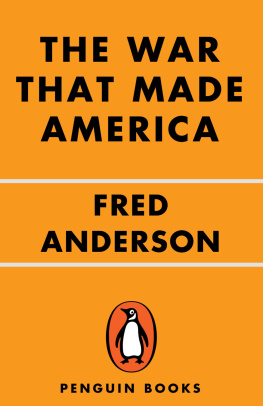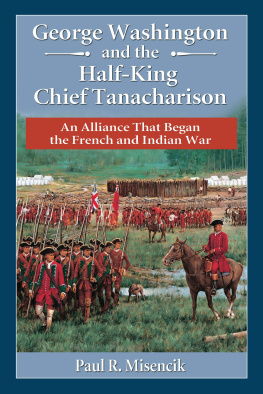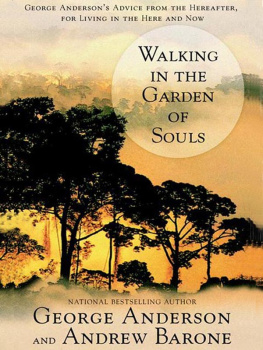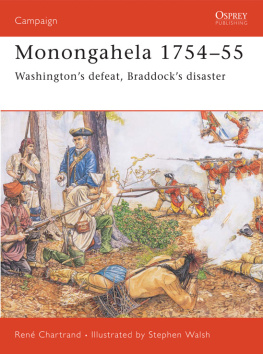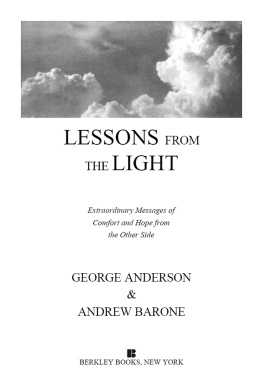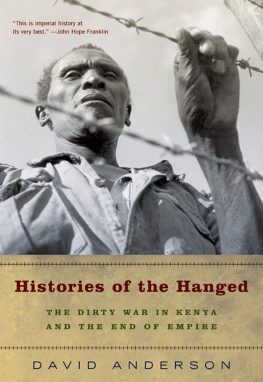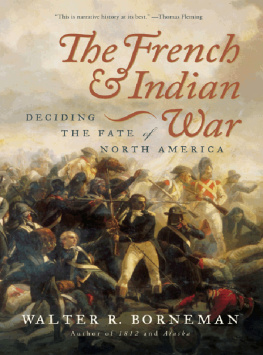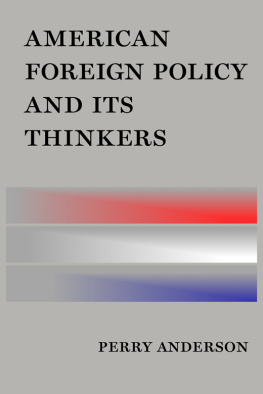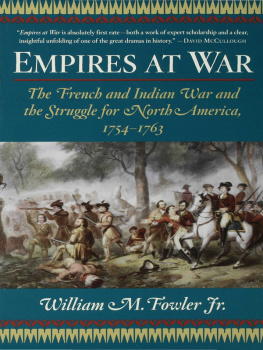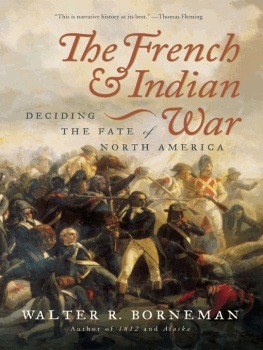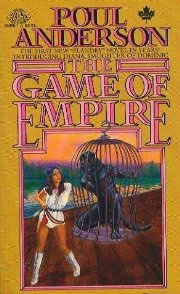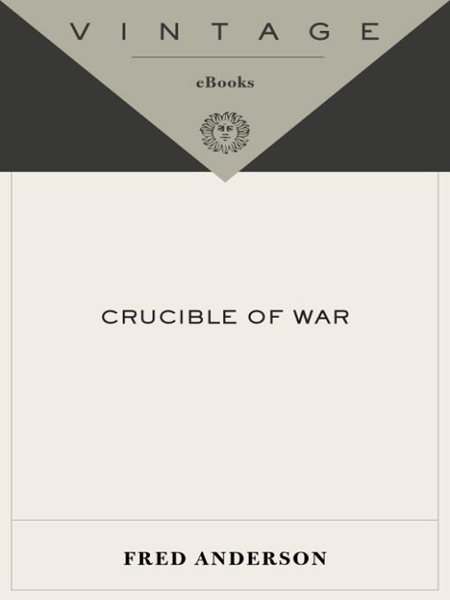
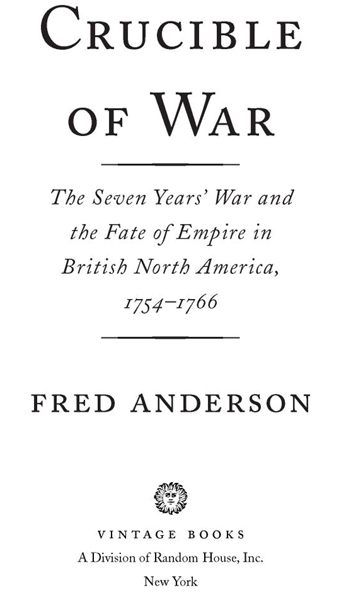
Table of Contents
To Virginia, at last
Acclaim for FRED ANDERSONs CRUCIBLE OF WAR
Unquestionably the most insightful, provocative and comprehensive look at this crucial period in American history. The State (Columbia, South Carolina)
Fascinating.... [Andersons] ability to empathize with his characters... is one of this exceptional works many virtues. As with any great historical work, this book is not a mere chronicle but a study in statecraft. Foreign Affairs
Anderson writes vividly.... He interweaves the stories of European kings and imperial officers with those of Indians, traders and the rich mixture of varied colonial peoples. Los Angeles Times
Crucible of War is likely to stand as the standard account of the French and Indian War. The Boston Globe
Fred Anderson presents us with an opportunity to consider the background and causes of the American Revolution from a fresh perspective.... A pivotal point in world history, told with reserved power. St. Louis Post-Dispatch
Important and beautifully written.... It will be a long time before the tale of this great war for empire in the New World needs to be told again. And its unlikely that it will ever be told so well. Kirkus Reviews
Illustrations
MAPS
Following page xxvii:
Progress of the Seven Years War
New France and the British Mainland Colonies in theSeven Years War
Indian Groups, Regions, and Topography of theNorth American Interior
New England, New York, New France, and theLake ChamplainHudson Corridor
St. Lawrence River Valley and Qubec, JUNE-SEPTEMBER 1759
Caribbean Operations, 1759-62
Central European Operations, 1756-62
Western Europe
Indian Subcontinent
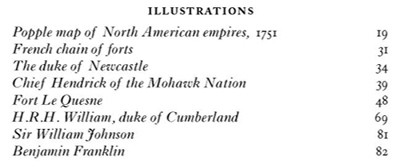
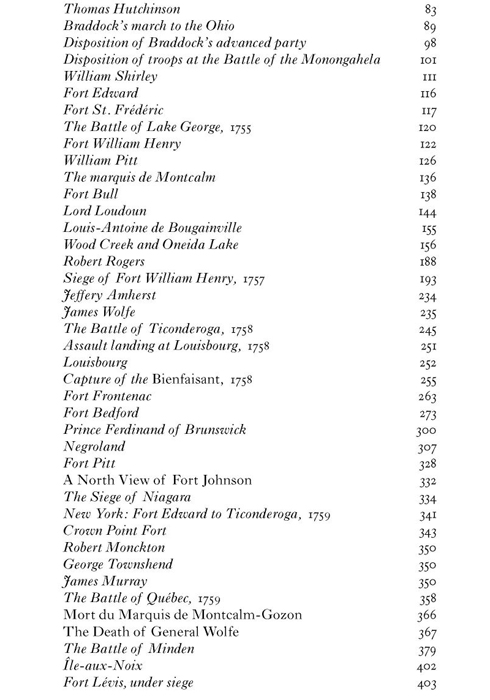
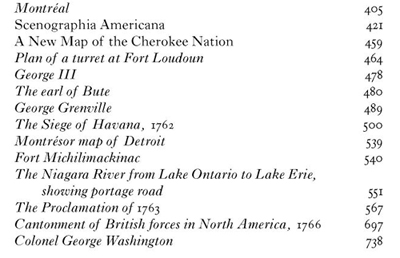
Maps
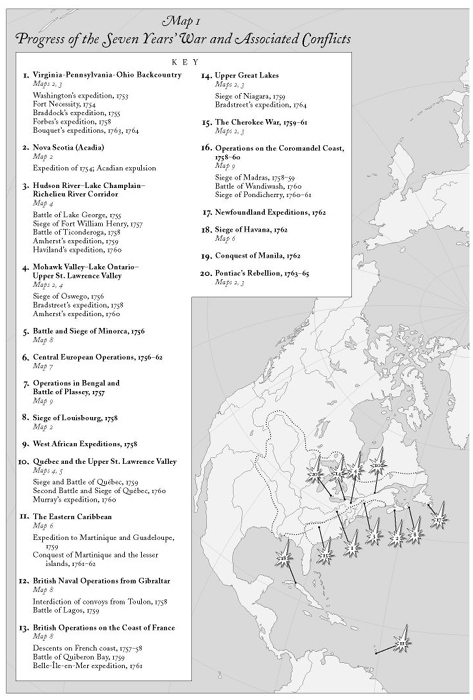
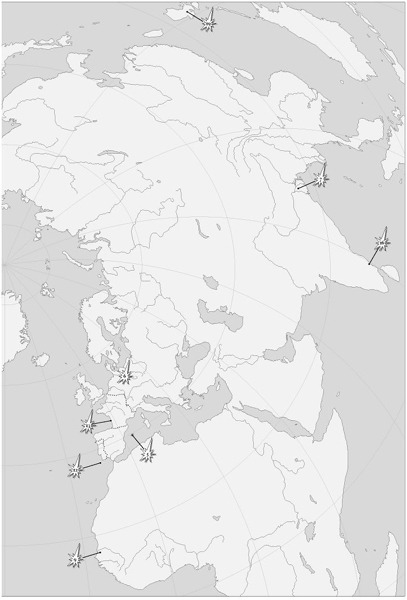
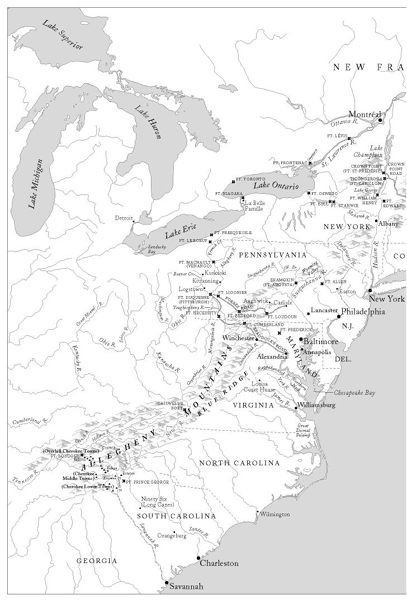
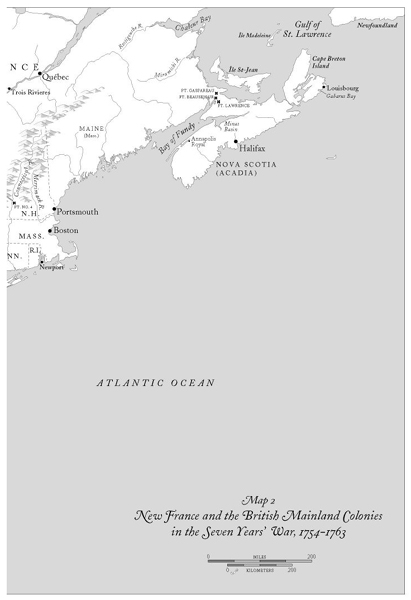
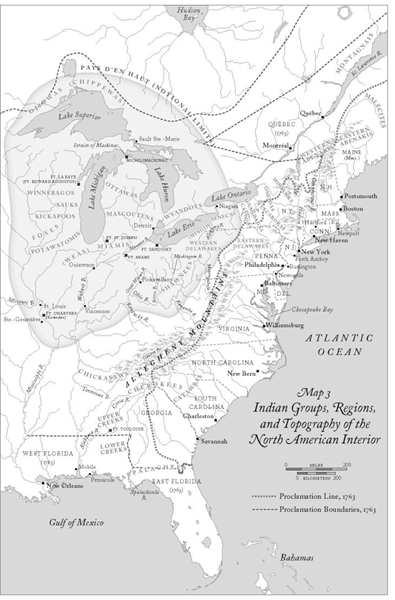
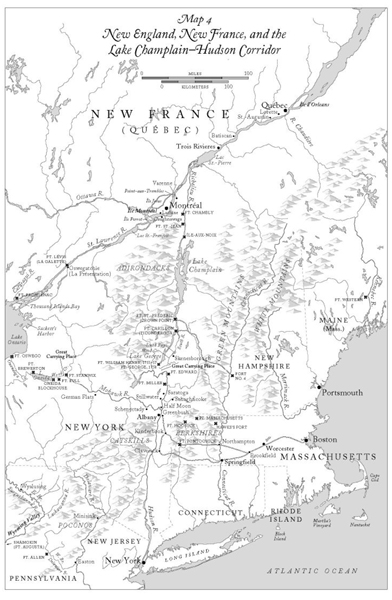
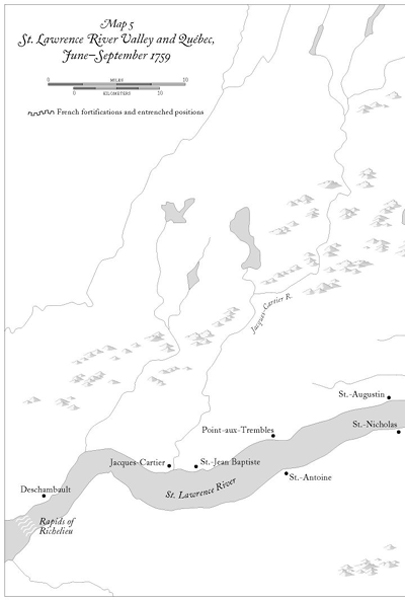
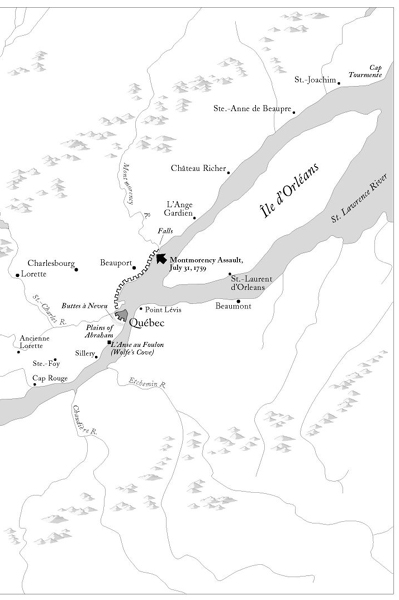
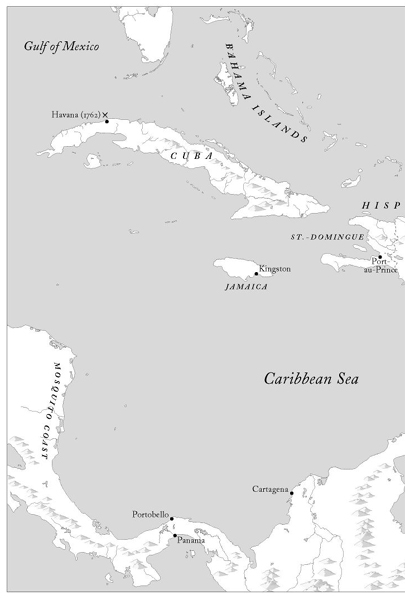
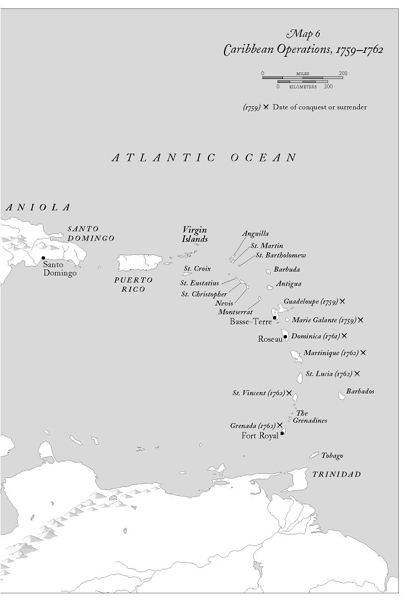
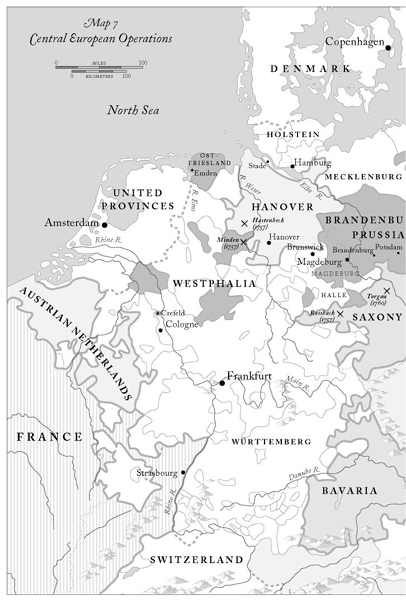
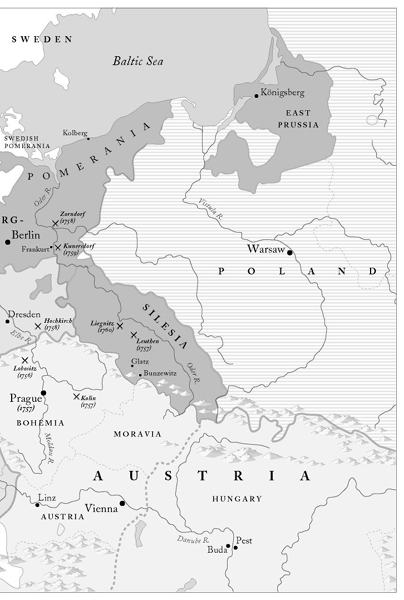
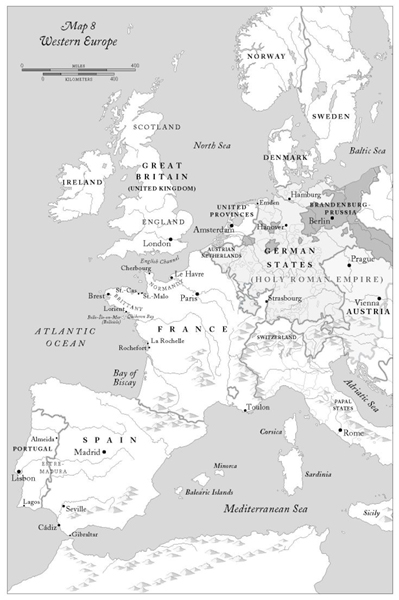
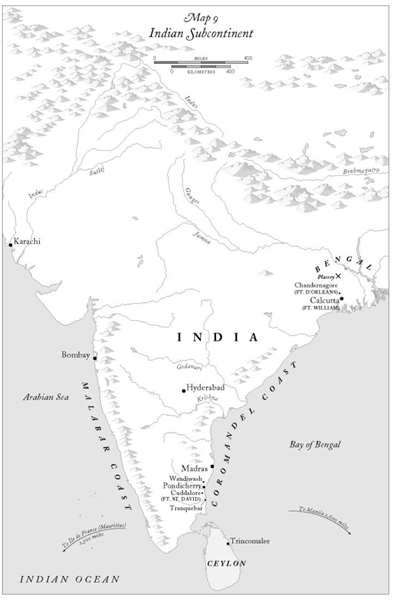
Introduction
THE SEVEN YEARS, WAR AND THE DISRUPTION OF THE OLD BRITISH EMPIRE
FEW REVERIES HAUNT history professors more insistently than the dream of writing a book accessible to general readers that will also satisfy their fellow historians scholarly expectations. At least that dream has haunted me, and I must admit that I wrote this book because of it. What follows is a narrative intended to synthesize a sizable range of scholarship, which can (I hope) be read without specialized prior knowledge. Because my understanding of the period before the American Revolution differs from what I take to be the conventional one, however, it seems only fair to begin by sketching the broad outlines of the books context, intent, design, and argument.
THE MOST IMPORTANT event to occur in eighteenth-century North America, the Seven Years War (or as the colonists called it, the French and Indian War) figures in most Americans consciousness of the past as a kind of hazy backdrop to the Revolution. As citizens of a nation created by an act of collective secession from the British empire, we Americans have always tended to take as our point of reference the thirteen rebelling colonies, not the empire as a wholeor the North American continent. This perspective has generally limited our ability to see the continuities between our pre-Revolutionary past and the rest of our history. Coming to grips with the Seven Years War as an event that decisively shaped American history, as well as the histories of Europe and the Atlantic world in general, may therefore help us begin to understand the colonial period as something more than a quaint mezzotint prelude to our national history. For indeed, if viewed not from the perspective of Boston or Philadelphia, but from Montral or Vincennes, St. Augustine or Havana, Paris or Madridor, for that matter, Calcutta or Berlinthe Seven Years War was far more significant than the War of American Independence.
Unlike every prior eighteenth-century European conflict, the Seven Years War ended in the decisive defeat of one belligerent and a dramatic rearrangement of the balance of power, in Europe and North America alike. In destroying the North American empire of France, the war created a desire for revenge that would drive French foreign policy, and thereby shape European affairs, for two decades. At the same time, the scope of Britains victory enlarged its American domains to a size that would have been difficult for any European metropolis to control, even under the best of circumstances, and the war created circumstances of the least favorable sort for Whitehall. Without the Seven Years War, American independence would surely have been long delayed, and achieved (if at all) without a war of national liberation. Given such an interruption in the chain of causation, it would be difficult to imagine the French Revolution occurring as it did, when it didor, for that matter, the Wars of Napolon, Latin Americas first independence movements, the transcontinental juggernaut that Americans call westward expansion, and the hegemony of English-derived institutions and the English language north of the Rio Grande. Why, then, have Americans seen the Seven Years War as little more than a footnote?
Next page

